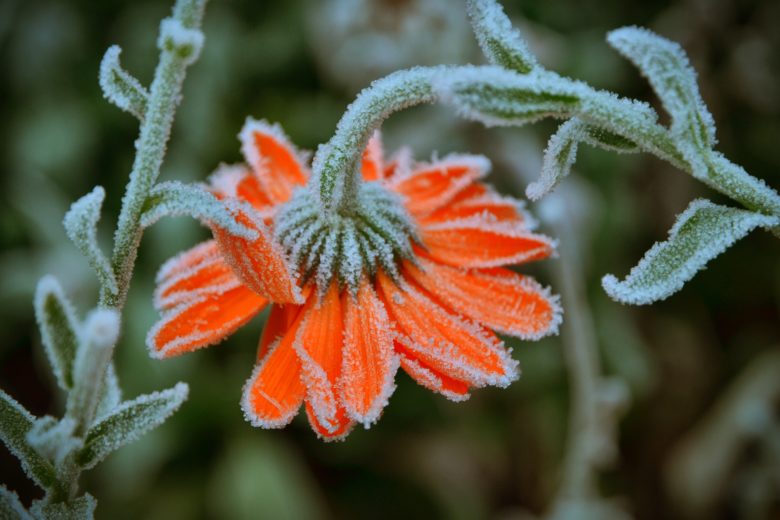It’s bittersweet when the first hard frost settles upon the farm. My happy hydrangeas that almost clashed with the spooky carved pumpkins on Halloween have been stripped of their vibrant pink. Resilient cosmos and hardy zinnias fought all summer against the puppy who loved to barrel through their giant stems, but alas, they ultimately lost the fight to Jack Frost.
Everything in the garden (everything but the kale, which actually becomes sweeter after a frost), has drooped, shriveled, and died. I spent the weekend cleaning out garden beds, thinking about how different this season of gardening is than all the rest.
Anticipation or celebration mark most of gardening. To plant is to hope; seeds are tiny promises; with a bountiful harvest comes a community ready to commemorate festival-style.
But it was quiet, except for the occasional bang of a hunter’s rifle, as I untangled tomatoes from their rusty cages and yanked roots from of the ground. A fragrant potpourri of companion plants basil, rosemary, nasturtium, and marigold petals adorned the now empty tomb of the earth.
As a society, we’ve come so far from our humble agrarian roots. This farming rhythm that marked life and dormancy used to be more ingrained in our consciousness, but advancements, technology, and nursing homes have separated us from the one certainty of life: death.
Some may think this morbid, but not farmers, and not Christians. In the fields, sunflowers stretch to Heaven before they bow from the weight of time and their fruit, thousands of seeds. In children’s literature and much to Wilbur’s horror, Charlotte catches and eats a fly. Without the meal, the clever spider wouldn’t have the energy for her “magnum opus” (or greatest work), her egg sac. It’s a far-too frequent event on the farm to experience the death of an animal. I’m convinced that’s why cattle, sheep, poultry, pigs, and the like are called “livestock”—farmers need those critters alive, and keeping them that way ain’t easy!
Church tradition dedicates the month of November to remembering the departed: God-fearing grandparents, innocent little ones, the spiritually heroic, and those souls we trust to Christ’s mercy. Just as November is the conclusion of my gardening season, it is also the end of the Church’s liturgical year. The First Sunday of Advent, November 28th, marks a fresh start, a season of joyful expectation.
As I piled fertilizer on the garden beds, I thought of how I could do better next year. Later, with a steaming cup of tea, fuzzy socks, and the eerie sound of coyotes hunting the hills, I jotted a reminder to plant marigolds earlier, and another note to pick up wicking for beeswax candles, and to leave a stick in the sheep’s water trough to help break up ice as the temperatures drop.
Death does that…makes us reflect. Endings do that. The idea that the Church remembers the departed also prompts us to think of our own mortality so that we can live each day preparing to meet God and helping others do the same. If our greatest example is Jesus Christ (and He is), then we must realize He came, suffered, and died so that we might live. So that we might have life, abundantly.
How appropriate that we end this month in gratitude with Thanksgiving. I never want to reflect and not be appreciative of all we’ve been given. Even in the gray of November and amongst its empty garden beds, it’s a beautiful life, friends.
*Feature Photo by Lennart Gasterstädt on Unsplash
